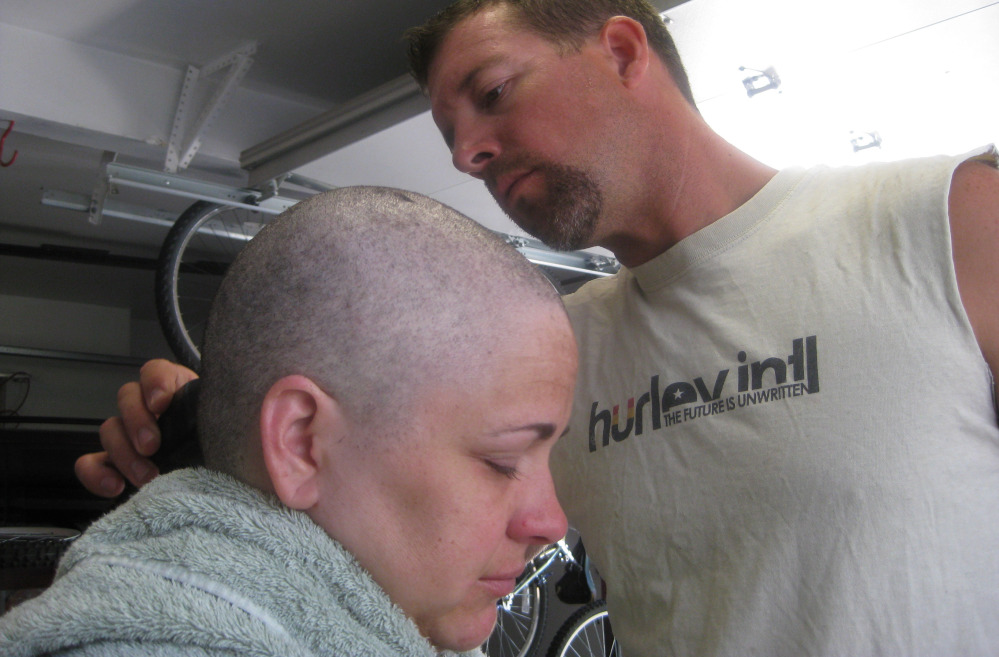CHICAGO — Two years ago, Arrica Wallace was riddled with tumors from widely spread cervical cancer that the strongest chemotherapy and radiation could not beat back. Today, the Kansas mother shows no signs of the disease, and it was her own immune system that made it go away.
The experimental approach that helped her is one of the newest frontiers in the rapidly advancing field of cancer immunotherapy, which boosts the body’s natural ways of attacking tumors.
At a conference in Chicago on Monday, doctors also reported extending gains recently made with immune therapies against leukemia and the skin cancer melanoma to bladder, lung and other tumor types.
The cervical cancer experiment was the first time an immune therapy has worked so dramatically against a cancer caused by a virus – HPV. In a pilot study by the National Cancer Institute, the tumors of two out of nine women completely disappeared and those women remain cancer-free more than a year later. That’s far better than any other treatment has achieved in such cases.
Doctors are trying it now against throat, anal and other cancers caused by HPV, the human papillomavirus, and think it holds promise for cancers caused by other viruses, too.
This is “very, very exciting,” said Dr. Don Dizon of Massachusetts General Hospital, a women’s cancer specialist with no role in the study.
Wallace lives in Manhattan, Kansas, west of Topeka, and was 35 when her cervical cancer was discovered. It spread widely, and one tumor was so large it blocked half of her windpipe. Doctors said she had less than a year to live, but with sons aged 8 and 12, “I couldn’t give up,” she said.
She enrolled in the study, and researchers removed one of her tumors, isolated special immune system cells that were attacking it, multiplied them in the lab and gave billions of them back to her in a one-time infusion. They also gave her drugs to boost her immune response – “like Gatorade for the cells,” she said.
“It’s been 22 months since treatment and 17 months of completely clean scans” showing no sign of cancer, Wallace said.
The second woman to have a complete response has been cancer-free for 15 months so far, said one study leader, Dr. Christian Hinrichs of the Bethesda, Maryland-based cancer institute.
“There’s no way to know” if the results will be permanent, he said.
A third woman had tumor shrinkage that lasted three months. The other six women did not respond to treatment and researchers are attempting to determine why.
Many private companies are pursuing other treatments that are given like drugs aimed at the immune system. Among therapies also discussed at the American Society of Clinical Oncology conference:
n Bristol-Myers Squibb Co.’s Yervoy, the first immune therapy to improve survival of advanced, inoperable melanoma, also helped prevent recurrence when given to people with earlier stage disease at regular intervals after surgery, a study of nearly 1,000 patients found. But severe side effects caused half to quit treatment, and five people died from it.
n Nivolumab, an experimental therapy from Bristol-Myers, extended survival by 3 1/2 years on average when given with Yervoy to people with very advanced melanoma.
Send questions/comments to the editors.



Success. Please wait for the page to reload. If the page does not reload within 5 seconds, please refresh the page.
Enter your email and password to access comments.
Hi, to comment on stories you must . This profile is in addition to your subscription and website login.
Already have a commenting profile? .
Invalid username/password.
Please check your email to confirm and complete your registration.
Only subscribers are eligible to post comments. Please subscribe or login first for digital access. Here’s why.
Use the form below to reset your password. When you've submitted your account email, we will send an email with a reset code.